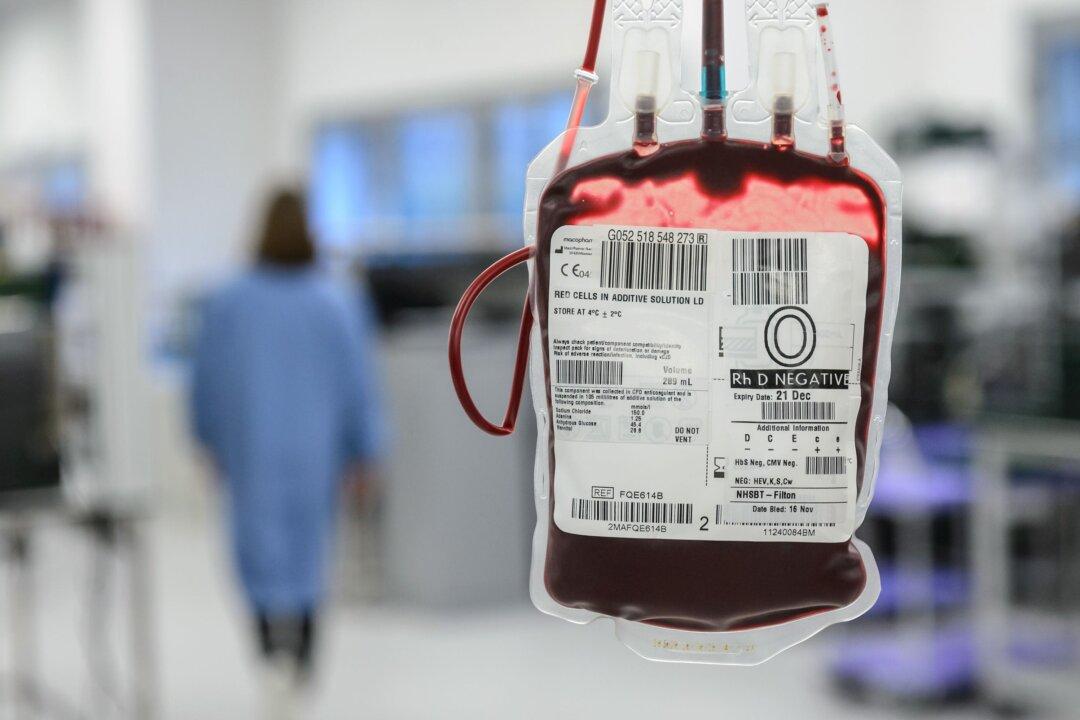Tens of thousands of people in the UK have sought to offer blood since Wednesday after the National Health Service (NHS) issued an amber alert over low supplies.
The alert was triggered after stock levels were predicted to fall below what would be needed for two days, meaning hospitals would need to delay non-urgent elective surgeries that require blood to be on standby, such as hip replacements.





